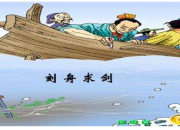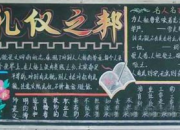学英语作文
时间:2021-08-31【必备】学英语作文合集七篇
在平平淡淡的学习、工作、生活中,大家总免不了要接触或使用作文吧,作文是经过人的思想考虑和语言组织,通过文字来表达一个主题意义的记叙方法。那要怎么写好作文呢?以下是小编整理的学英语作文7篇,希望能够帮助到大家。
学英语作文 篇1
Each year, college students, encouraged to aid students in the poverty-stricken areas, volunteer themselves in poor villages for a year and try to improve education in poor areas.
Aid education has been beneficial in two aspects. For one thing, college volunteers are really devoted to the cause. They have opened the eyes of students in underdeveloped regions to the outside world by bringing them new knowledge and thoughts. As a result, they are extremely well-received by the children there. For another thing, college students have received a rigorous recitation and no-distance friendship from the children. In addition, they are greatly inspired by the moving and tireless spirit of the children.
学英语作文 篇2
much has been discussed recently on english teaching at college, someone says that it is a total failure. to some extent , it is reasonable to say so, for after ten-year english learning, most graduates can't properly communicate with foreigners, nor can we translate between languages, let alone write in english. where are the problem?
to begin with, english teaching at college, to a great extent, teacher-centerde, turning a language class into an information class. it is still very common in the classroom that the teacher explains every language point in detail, while students take notes all the
secondly, culture is neglected in english teaching because of poor text design. some redundant unrealistic materials and a great deal or grammar and structure exercises in the text lead to students memorizing a large vocabulary and a lot of english rules. few students know how , when and where to use them.
finally, test-oriented education, in a sense, misleads and impedes college english teaching in china. for example, colege english test band four or six is so overemphasized in some colleges that teachers teach to the test, sacrificing learning for the sake of test results, and students only learn to pass the examination. as a result ,students actual language competence is weakened though the passing rate has increased.
in conclusion, chinese english teaching is to be reformed. students should be centered on , culture knowledge ,should be introduced in language teaching , and examination should be dealt with appropiately.
学英语作文 篇3
i am speaking not as a briton, not as a european, not as a member of a western democracy, but as a human being, a member of the species man, whose continued eistence is in doubt. the world is full of conflicts: jews and arabs; indians and pakistanis; white men and negroes in africa; and, overshadowing all minor conflicts, the titanic struggle between communism and anticommunism.
almost everybody who is politically conscious has strong feelings about one or more of these issues; but i want you, if you can, to set aside such feelings for the moment and consider yourself only as a member of a biological species which has had a remarkable history and whose disappearance none of us can desire. i shall try to say no single word which should appeal to one group rather than to another. all, equally, are in peril, and, if the peril is understood, there is hope that they may collectively avert it. we have to learn to think in a new way. we have to learn to ask ourselves not what steps can be taken to give military victory to whatever group we prefer, for there no longer are such steps. the question we have to ask ourselves is: what steps can be taken to prevent a military contest of which the issue must be disastrous to all sides?
the general public, and even many men in positions of authority, have not realized what would be involved in a war with hydrogen bombs. the general public still thinks in terms of the obliteration of cities. it is understood that the new bombs are more powerful than the old and that, while one atomic bomb could obliterate hiroshima, one hydrogen bomb could obliterate the largest cities such as london, new york, and moscow. no doubt in a hydrogen-bomb war great cities would be obliterated. but this is one of the minor disasters that would have to be faced. if everybody in london, new york, and moscow were eterminated, the world might, in the course of a few centuries, recover from the blow. but we now know, especially since the bikini test, that hydrogen bombs can gradually spread destruction over a much wider area than had been supposed. it is stated on very good authority that a bomb can now be manufactured which will be 25,000 times as powerful as that which destroyed hiroshima. such a bomb, if eploded near the ground or under water, sends radioactive particles into the upper air. they sink gradually and reach the surface of the earth in the form of a deadly dust or rain. it was this dust which infected the japanese fishermen and their catch of fish although they were outside what american eperts believed to be the danger zone. no one knows how widely such lethal radioactive particles might be diffused, but the best authorities are unanimous in saying that a war with hydrogen bombs is quite likely to put an end to the human race. it is feared that if many hydrogen bombs are used there will be universal death - sudden only for a fortunate minority, but for the majority a slow torture of disease and disintegration...
here, then, is the problem which i present to you, stark and dreadful and inescapable: shall we put an end to the human race1 or shall mankind renounce war? people will not face this alternative because it is so difficult to abolish war. the abolition of war will demand distasteful limitations of national sovereignty. but what perhaps impedes understanding of the situation more than anything else is that the term mankind feels vague and abstract. people scarcely realize in imagination that the danger is to themselves and their children and their grandchildren, and not only to a dimly apprehended humanity and so they hope that perhaps war may be allowed to continue provided modern weapons are prohibited. i am afraid this hope is illusory. whatever agreements not to use hydrogen bombs had been reached in time of peace, they would no longer be considered binding in time of war, and both sides would set to work to manufacture hydrogen bombs as soon as war broke out, for if one side manufactured the bombs and the other did not, the side that manufactured them would inevitably be victorious...
as geological time is reckoned, man has so far eisted only for a very short period one million years at the most. what he has achieved, especially during the last 6,000 years, is something utterly new in the history of the cosmos, so far at least as we are acquainted with it. for countless ages the sun rose and set, the moon waed and waned, the stars shone in the night, but it was only with the coming of man that these things were understood. in the great world of astronomy and in the little world of the atom, man has unveiled secrets which might have been thought undiscoverable. in art and literature and religion, some men have shown a sublimity of feeling which makes the species worth preserving. is all this to end in trivial horror because so few are able to think of man rather than of this or that group of men? is our race so destitute of wisdom, so incapable of impartial love, so blind even to the simplest dictates of self-preservation, that the last proof of its silly cleverness is to be the etermination of all life on our planet? - for it will be not only men who will perish, but also the animals, whom no one can accuse of communism or anticommunism.
i cannot believe that this is to be the end. i would have men forget their quarrels for a moment and reflect that, if they will allow themselves to survive, there is every reason to epect the triumphs of the future to eceed immeasurably the triumphs of the past. there lies before us, if we choose, continual progress in happiness, knowledge, and wisdom. shall we, instead, choose death, because we cannot forget our quarrels? i appeal, as a human being to human beings: remember your humanity, and forget the rest. if you can do so, the way lies open to a new paradise; if you cannot, nothing lies before you but universal death.











